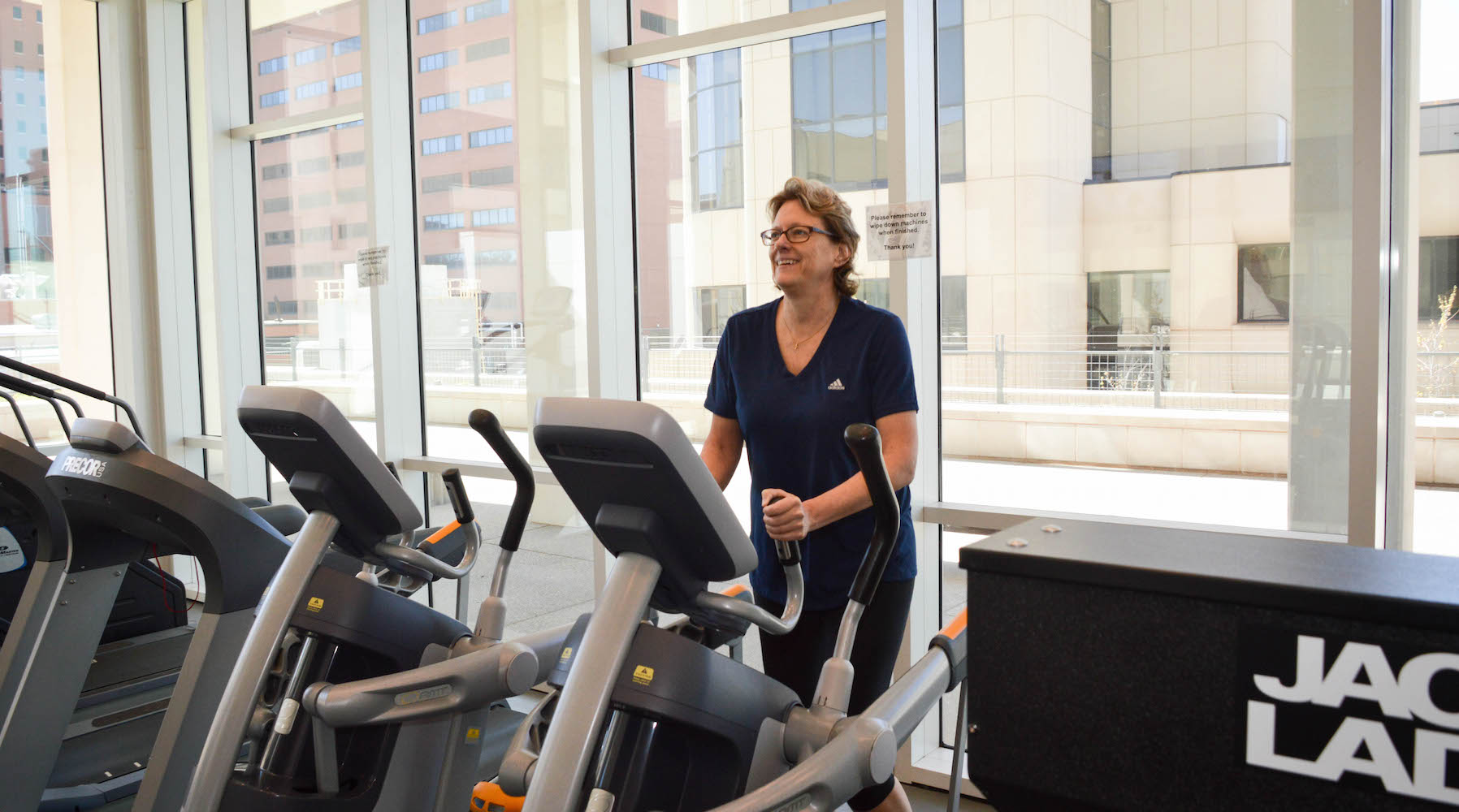Aging is inevitable, but it doesn’t have to be miserable.
The Aging and Metabolism Research Program at OMRF takes a comprehensive approach to addressing diseases of aging, looking at everything from vision loss to arthritis to age-related muscle loss.
Their goal, says program chair Holly Van Remmen, Ph.D., is “not just adding years to your life, but also adding life to your years.”
While research and medicine are making strides in improving health as people age, a lot of the burden falls on the shoulders of the individual. So here are a few tips from aging experts for making your golden years truly golden.
1. Move it
Exercise is crucial at every age. Unfortunately this is one thing many of us forego in favor of literally anything else.
Research shows even 30 minutes of exercise daily not only helps you avoid packing on the pounds, it also lowers blood pressure, strengthens bones and improves mood.
“From a muscle perspective, which is my primary area of expertise, this is one that can have a cascade of effects, either positive or negative,” said Van Remmen. “It can make or break your quality of life.”
Small amounts of weight training have been shown to benefit older people, she said. It helps maintain muscle mass over time and improves bone health. “All these things center around strength and mobility,” she said. “They also improve balance, and that can help you avoid falls and injuries.”
And you don’t need to develop bulging biceps to see benefits from weight training. Van Remmen suggests doing what you can do safely, from using light hand weights to resistance bands. Even just walking to the mailbox, taking the stairs or watering plants can help preserve your mobility and balance over time.
2. Focus on food
It’s no secret that obesity has a severe negative impact on health in a variety of ways. Heart disease alone kills 800,000 Americans annually and is a leading killer in Oklahoma. It can also lead to type 2 diabetes and contribute to osteoarthritis.
On the other side of the coin, malnutrition is also an issue in our aging population, said OMRF President Stephen Prescott, M.D. As people age, they tend to have relatively poor appetites as some of their senses dim. Prescott stresses the importance of eating adequate protein— 45 grams of protein for women and 55 grams for men—to help your body recover from wear and tear and maintain muscle mass.
“Shakes like those made by Ensure or Boost can help seniors maintain a healthy weight, said Prescott. “They aren’t a magic solution and they don’t replace nutrition-rich whole foods, but they can help.”
3. Brain gains
While physical exercise is important, exercising your brain is also valuable. Scientists increasingly believe it is wise to read, work puzzles, play games and socialize to help improve memory and keep the brain healthy and perhaps delay the onset of Alzheimer’s and other forms of dementia.
Alzheimer’s is the fifth-leading cause of death in Americans over the age of 65. It is the most common form of dementia, accounting for 60-80 percent of all cases, according to the Alzheimer’s Association.
“Don’t let your brain stagnate,” Van Remmen said. “Studies show that people age more successfully when they engage with others and stay active mentally. Whether that means taking part in bridge club, bingo night or church groups or just picking up a good book, do whatever suits you best.”



